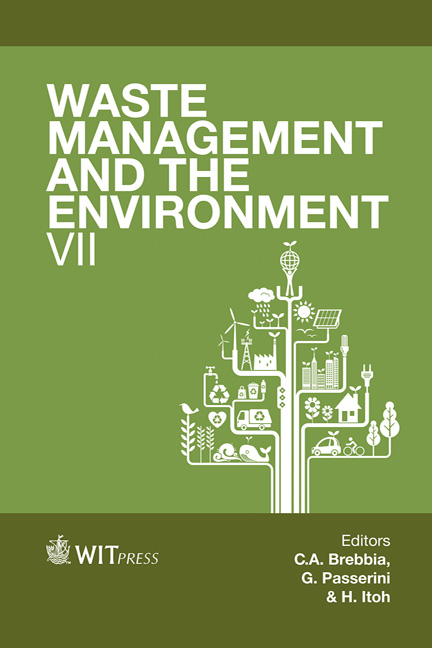Investigating Household Recycling Behaviour Through The Interactions Between Personal And Situational Factors
Price
Free (open access)
Transaction
Volume
180
Pages
12
Published
2014
Size
428 kb
Paper DOI
10.2495/WM140101
Copyright
WIT Press
Author(s)
E. E. A-Jalil, D. B. Grant, J. D. Nicholson & P. Deutz
Abstract
In recent years household recycling behaviour (HRB) has become a focal point in social science research to understand the concept of household waste recycling management. Household recycling systems involve two main actors: households and municipalities. This paper reports on an empirical study of the interaction between HRB and household waste recycling systems provided by municipalities. A convenience sample of 412 households was selected to complete a survey on recycling initiatives with personal and situational factors and also their interaction. Results showed that personal factors have a significant relation with situational factors (availability, accessibility, awareness and convenience) (p < 0.01) and vice versa; with a positive correlation (r (412) = +0.41). In addition, personal factors correlated positively to availability, accessibility, awareness and convenience at a p-value below 0.01. Furthermore, situational factors interact with demographical factors such that personal factors may be predicted (overall HRB). This study uses both an interdisciplinary and multi-methods approach to answer its research questions and is also accessible to both practitioner and academic domains. Keywords: recycling, reverse logistics, recycling behaviour, symbiosis effect, household recycling waste management, interaction, sustainability.
Keywords
recycling, reverse logistics, recycling behaviour, symbiosis effect, household recycling waste management, interaction, sustainability.





